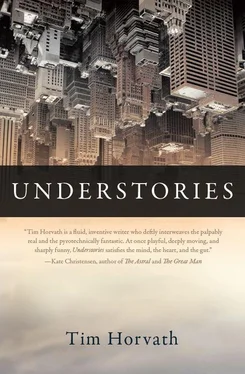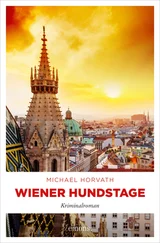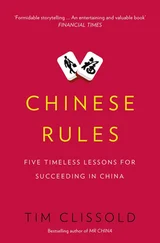When we were awash with youth, we were all led to believe that our father was assembling a book called The Atlas of the Voyages of Things, or, as we shortened it, The Atlas. That it was eventually destined to enter the world was incontestable — one day, assuredly, we would march into the bookshop behind his gallant stride, and there, on the shelf, would sit the book, sprawling, coffee table — ready, his name beaming from the front as on a theater marquee. “You see, boys?” he’d say, and we would solemnly nod.
But before you get overly swept away in such childhood reverie, I owe you a snapshot of him from years later, nearer the present: in a hospital bed, riggered to a set of machines that monitored many of his bodily functions. My memories of the strapping man I once knew — almost fiendish in his independence, wearing his learning like his plaid flannel at barbecues and on vacations, splitting hairs with the tour guide in an underground cave about this or that obscure fact — vied with the presence of the helpless man before me. His body itself had been extended through tubes into clear hanging bags — transparent, clearly labeled external organs. His body was being perpetually translated into the language of quantification, via feedback machines through which rates and levels looped again and again.
His body; his body. In such mantras, electronic and otherwise, I could achieve a semblance of peace. Amid the faint hum of fluorescent lights and machines, an image would sometimes materialize for me of a brown-haired girl with a Hula-hoop. She was so adept and satisfied with its steady motion that she could gyrate it indefinitely. At some point in each of my visits, I arrived at some version of that peace, which came to stand, however fleetingly, for infinity. Those visits were frequent. I was trying to make up for the fact that Aidan, my brother, was far away, and that when these rhythms reverted to silence, it would register barely a blip, I think, in my mother’s day.
Seeing him so reduced, though, it was impossible not to think of The Atlas and the fervid energy it had once commanded. Behind the door of his office, which jutted proudly at the stern of our first house, overlooking the yard and taking in maddening sunsets, he was supposedly huddled amid his papers in the evening hours, piecing together a masterwork, a lifelong enterprise. There was a certain comfort in glancing up on summer evenings while we built a fort at the edge of our yard where the woods began, with the volley of dogs barking back and forth nearby. It was the comfort of your tongue tripping on your own sweat, a friendly reminder that of the world’s salt, a share is yours. His presence hovered over us.
For a long time, my brother, Aidan, and I had a rather comical misunderstanding of what an ordinary atlas actually was, our definition warped by what we were told about this book. We revealed this to each other years later, our own laughter backed by that of Aidan’s family. His wife, son, and daughter could not get over how “weird” we both were, Daddy and “silly Uncle Jay.”
It was not our only failure of understanding. Until I was older — I couldn’t pinpoint exactly when — I held intuitions about the nature of paper that would be considered by most profoundly strange. My father worked as an editor by day, and one of the perks of his job was the paper he would bring home for us to color or scrawl on, piles consisting of scrap versions of manuscripts. One side of each page was still blank; on the “reverse” of each page was a smattering of text. Without even considering that it might be otherwise, I assumed that paper itself was one-sided. All things that could be said or drawn were thus built upon the backs of words already written: dancing constellations of musings on metaphysics, the mineral composition of scarabs, the origins of the treble clef. I am, of course, projecting backward with an adult’s grasp of the world. At the time, they were simply the “wrong” side of the page, bearing no more meaning than the dull gray backing of aluminum foil or the mineral deposits on the underbelly of a rock.
But atlases. Our misunderstanding was exacerbated by the constant references made to The Atlas. No occasion or gathering could take place without it being invoked. If my Uncle Gerry was in from Detroit, it would only be a matter of time before he would growl, “How’s that book of yours coming?” his voice bearing its precarious mix of support and doubt like an overly full soup bowl.
“It’s coming along great, Gerry,” my father would say emphatically. “I tell you, though, I’m gonna need your help on the part about cars, you being up there in Detroit and all.”
“Yes, but I’m a chemist, Gus,” Gerry would shoot back.
“I know that, Gerry, but you’re up there in Detroit and, well, by God, you’re my man on assignment for those particular pages,” my dad would insist.
Always, when asked about the status of the book, even as a form of small talk, my father would plead for the personal assistance of the person asking, making him or her feel, at least for a few moments, indispensable to the project. That included the guy at the corner store, our dentist, the fellow who checked out our water meter. And through my child’s eyes, they all seemed both flattered and willing.
The premise, for all of the book’s unwieldy history, was disarmingly straightforward. My father was eternally fascinated by how things came to be where they currently were. In the case of the automobile entry that he’d repeatedly vowed to coauthor with Gerry, he wanted to know where the metal had come from, where the leather or vinyl for the seats had been manufactured, where the paint had come from, the glass, et cetera. The page would then be cross-referenced so that you could look up a page on paint itself and determine where the chemical components of paint had originated, where the particles that formed glass had once been granules of sand, how that sand had been deposited and swept around by ocean currents, based on the best understanding then available. Maps would untuck from each of its opposing pages on whatever cartographic scale was merited, and, spread like wings, would chart the voyages of things, as heroic in my father’s mind as the boldest venture in the Age of Exploration.
He’d gone so far as to write up a book jacket for the book itself, although leaving enough gaps in it so that he could, as he phrased it, “put forth his best stuff when it’s all done.” The jacket, which he shared with us as proudly, as though it was draped around an actual book, read thusly:
The Atlas of the Voyages of Things is a lavishly illustrated book that documents the marvelous, intricate, globetrotting chain of events by which things come to be what and where they are. It is a book that is somewhat scholarly in tone, yet addressed to the general reader. One finds oneself learning that ________ originates in ________, that in fact, to one’s amazement, ________ comes from ________, and that the ________ in ________ is actually derived from ________. Anyone, almost anyone — anyone with the slightest degree of susceptibility to the specific as it impinges on the universal, or vice versa, in short anyone with an iota of curiosity — will find something to mull over in it. It is eminently mullworthy. It is decidedly not a book that one reads straight through — who could bear to do so? For to do so would mean that, rather than catching one’s breath after learning that ________ is of ________-ian origin, and allowing the ramifications, however great or small, of this discovery to sink in, one would go on in the next breath to learn that ________ is of ________. And like some defiance of the principle of res extensa, two bodies (facts) occupying the same space (logical) at once, this would flout all that is harmonious and tolerable. How narrowly or broadly are “things” to be defined? There is the section on the circulation of fluids in the body, that of the winds known as the trade winds, maps of various epidemics, as they are believed to have been transmitted, a map of the spread of languages as they are believed to have emanated out of Africa, or simultaneously in many regions, depending on whether one subscribes to the monogenetic or polygenetic theory of origins. There are maps of the drug trade whose degree of detail might send tremors through the most Kevlar-entrenched drug dealer. There are maps of genetic modification of foods, delineating how they have sprawled all over the American landscape, picked up and buffeted by winds lacking policy agendas. [ He updated some of these over the years, as you have surely noted .]
Читать дальше












